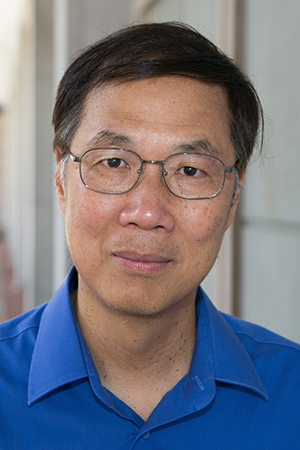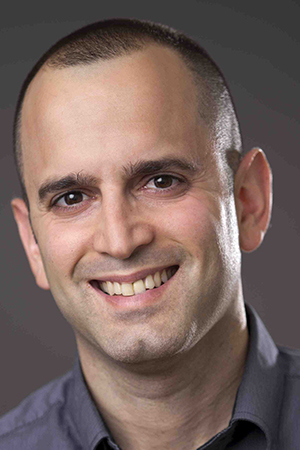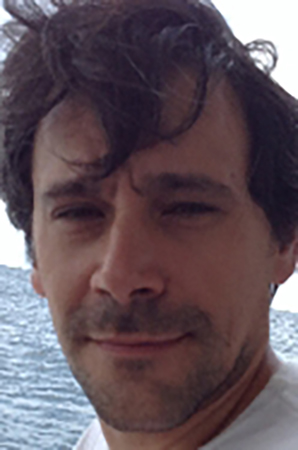News
Faculty Members Join Department of Systems Biology and C2B2
The Department of Systems Biology and Center for Computational Biology and Bioinformatics are pleased to announce that three Columbia University faculty members have recently joined our community. Kam Leong, the Samuel Y. Sheng Professor of Biomedical Engineering at Columbia University, is now an interdisciplinary faculty member in the Department of Systems Biology. In addition, Yaniv Erlich and Guy Sella are now members of the Center for Computational Biology and Bioinformatics (C2B2). Their addition to the Department and to C2B2 will bring new expertise that will benefit our research and education activities, incorporating perspectives from fields such as nanotechnology, bioinformatics, and evolutionary genomics.
 Kam Leong is a pioneer in developing multifunctional nanoscale technologies for delivering drugs, antigens, proteins, siRNA, and DNA to cells. Innovations in the Leong Lab include biomaterials such as electrospun nanofibers for controlled release and tissue engineering, synthesis of biocompatible and near-infrared-emitting quantum dots, nucleic acid-binding polymers, and microfluidic platforms for nanomedicine. He has also designed nonviral gene delivery mechanisms for hemophilia treatment, genetic immunization, and cellular reprogramming. His recent work has focused on directly reprogramming adult cells from one lineage to another without going through the intermediate pluripotent state. His lab is particularly interested in how such approaches, based in tissue engineering and regenerative medicine, could offer new strategies for treating neurodegenerative disorders such as Alzheimer’s and Parkinson’s diseases. In 2013 Dr. Leong was elected a Member of the USA National Academy of Engineering and a Member of the USA National Academy of Inventors.
Kam Leong is a pioneer in developing multifunctional nanoscale technologies for delivering drugs, antigens, proteins, siRNA, and DNA to cells. Innovations in the Leong Lab include biomaterials such as electrospun nanofibers for controlled release and tissue engineering, synthesis of biocompatible and near-infrared-emitting quantum dots, nucleic acid-binding polymers, and microfluidic platforms for nanomedicine. He has also designed nonviral gene delivery mechanisms for hemophilia treatment, genetic immunization, and cellular reprogramming. His recent work has focused on directly reprogramming adult cells from one lineage to another without going through the intermediate pluripotent state. His lab is particularly interested in how such approaches, based in tissue engineering and regenerative medicine, could offer new strategies for treating neurodegenerative disorders such as Alzheimer’s and Parkinson’s diseases. In 2013 Dr. Leong was elected a Member of the USA National Academy of Engineering and a Member of the USA National Academy of Inventors.
 Yaniv Erlich is an Assistant Professor of Computer Science and Computational Biology at Columbia University and a Core Member at the New York Genome Center. The Erlich Lab has developed bioinformatics methods that use diverse datasets to explore the genetic architecture of complex human traits. His work has focused on the role of short tandem repeats in rare genetic disorders and recently on the design of new approaches that use genealogy social networks to conduct genetic epidemiology studies based on millions of individuals. In a widely noticed 2013 paper he also showed that it is possible to identify personal identities in data previously thought to be de-identified, raising important questions about data security and privacy. Before joining Columbia University, Erlich was a Principal Investigator at the Whitehead Institute, MIT. He has been a recipient of the Burroughs Wellcome Career Award, the Harold M. Weintraub award, and the IEEE/ACM-CS HPC award. In 2010 he was selected as one of “Tomorrow’s PI’s” by Genome Technology magazine.
Yaniv Erlich is an Assistant Professor of Computer Science and Computational Biology at Columbia University and a Core Member at the New York Genome Center. The Erlich Lab has developed bioinformatics methods that use diverse datasets to explore the genetic architecture of complex human traits. His work has focused on the role of short tandem repeats in rare genetic disorders and recently on the design of new approaches that use genealogy social networks to conduct genetic epidemiology studies based on millions of individuals. In a widely noticed 2013 paper he also showed that it is possible to identify personal identities in data previously thought to be de-identified, raising important questions about data security and privacy. Before joining Columbia University, Erlich was a Principal Investigator at the Whitehead Institute, MIT. He has been a recipient of the Burroughs Wellcome Career Award, the Harold M. Weintraub award, and the IEEE/ACM-CS HPC award. In 2010 he was selected as one of “Tomorrow’s PI’s” by Genome Technology magazine.
 Guy Sella is an associate professor in the Columbia University Department of Biological Sciences. His lab works to understand natural selection at the level of the genome, using quantitative models to analyze and distinguish patterns of genetic variation. They then use these models to make inferences about the relationships between natural selection and genetic variation in humans and other species, including such questions as what types of genetic variation are adaptive, how speciation arises from genetic variation, and why patterns of adaptive genetic variation differ across species. In addition, a particular interest in his lab is to understand how quantitative traits — such as height, body mass index, and the risk of developing certain diseases — evolve due to the interaction of many genetic variants. This has included exploring how recent demographic history among different human populations affects their burden of genetic diseases and how the genetic basis of quantitative traits affects response to novel selection pressures.
Guy Sella is an associate professor in the Columbia University Department of Biological Sciences. His lab works to understand natural selection at the level of the genome, using quantitative models to analyze and distinguish patterns of genetic variation. They then use these models to make inferences about the relationships between natural selection and genetic variation in humans and other species, including such questions as what types of genetic variation are adaptive, how speciation arises from genetic variation, and why patterns of adaptive genetic variation differ across species. In addition, a particular interest in his lab is to understand how quantitative traits — such as height, body mass index, and the risk of developing certain diseases — evolve due to the interaction of many genetic variants. This has included exploring how recent demographic history among different human populations affects their burden of genetic diseases and how the genetic basis of quantitative traits affects response to novel selection pressures.